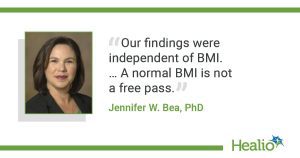Women with risk factors for heart disease, such as high blood pressure, high cholesterol and a family history, should start a dialogue with their primary care physician in their 40s so they can begin a prevention regimen that will keep them healthy.
“Women have a low prevalence of the disease until menopause where symptoms and risk factors may go unnoticed until they are well into their 50s and 60s,” said Sangeeta Saikia, M.D., a cardiologist with Houston Methodist Cardiology Associates at Sugar Land. “Women with risk factors need to be 10 years ahead of the game and proactive when it comes to prevention, but unfortunately, too many delay being tested.”
Saikia said talking to their doctor about their family history is very important for women, especially if a family member died of the disease at a young age. She added they should also have their blood pressure and cholesterol monitored regularly, develop an exercise and nutrition plan, and, if they are a smoker, stop smoking. Women over 50 with risk factors, especially if not controlled, will benefit from seeing a cardiologist.
“We can begin performing appropriate tests, assessing their risk based on genetics, and taking the necessary actions to keep them on the right track,” said Saikia. “Women with the aforementioned risks for heart disease should treat this like they do a mammogram and be checked at least once a year.”
A recent survey published in the Journal of the American College of Cardiology found that nearly half of the women in the United States do not know that heart disease is the leading cause of death in women. In addition, 74 percent of the women surveyed had at least one heart disease risk factor, but only 16 percent told their doctor about it.
The survey also pointed out that only 22 percent of primary care physicians felt prepared to assess a woman’s risk for heart disease. Saikia says if further treatment is necessary, your primary care physician may refer you to a cardiologist.
It is important to know that heart problems in women are not as recognizable as they are in men. Some of the symptoms for women include:
- Extreme weakness, anxiety, or shortness of breath;
- Discomfort, pressure, heaviness or pain in the chest, arm, below the breastbone or in the middle of the back;
- Sweating, nausea, vomiting, dizziness;
- Fullness, indigestion, a tightness in the throat area;
- Rapid or irregular heartbeats.
“The myth that heart disease is a man’s disease is just that, a myth. The time is now for women to realize that they can be affected,” Saikia said. “If a woman can get years ahead of the disease, she gives herself a much better chance of beating it.”
To schedule an appointment with Dr. Sangeeta Saikia, call 713-776-9500. For more information about Houston Methodist Sugar Land Hospital, visit houstonmethodist.org/sugarland or call 281-274-7500 for a physician referral.
This content was originally published here.









